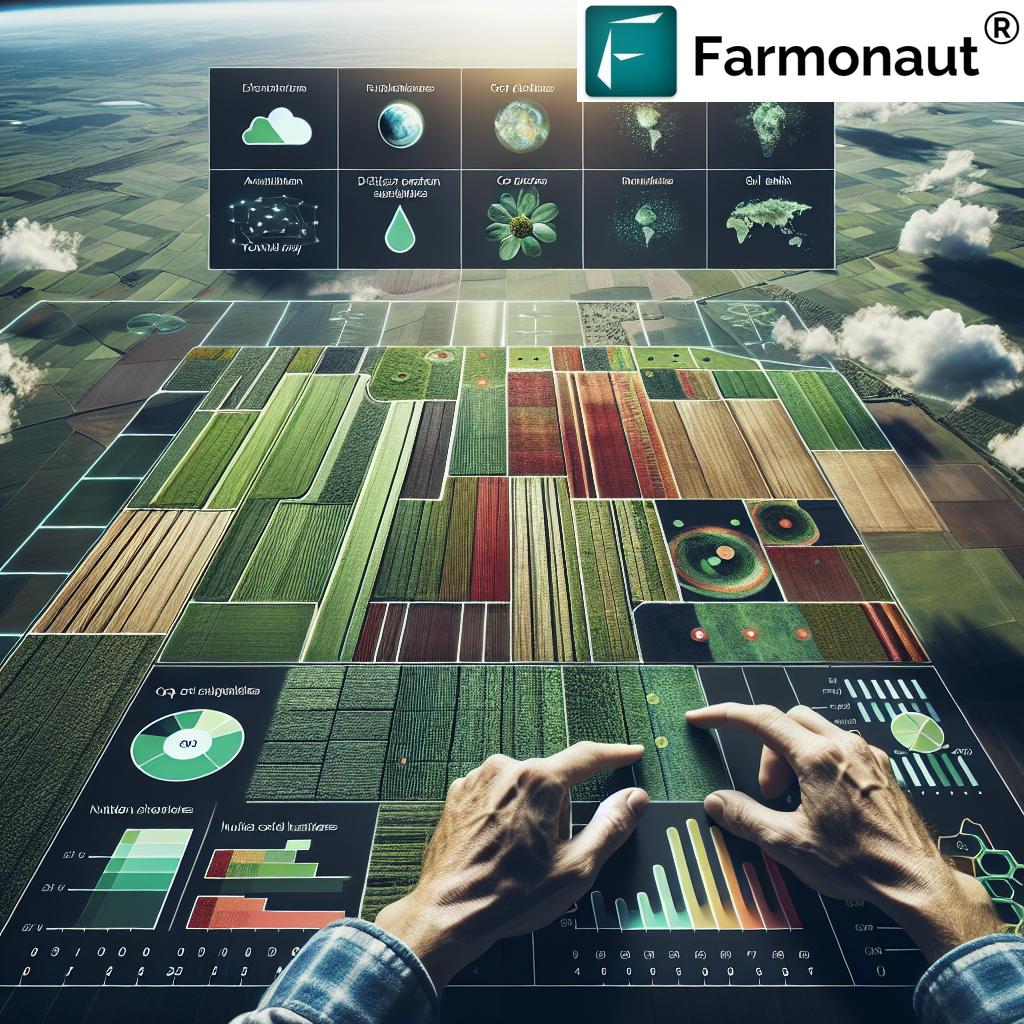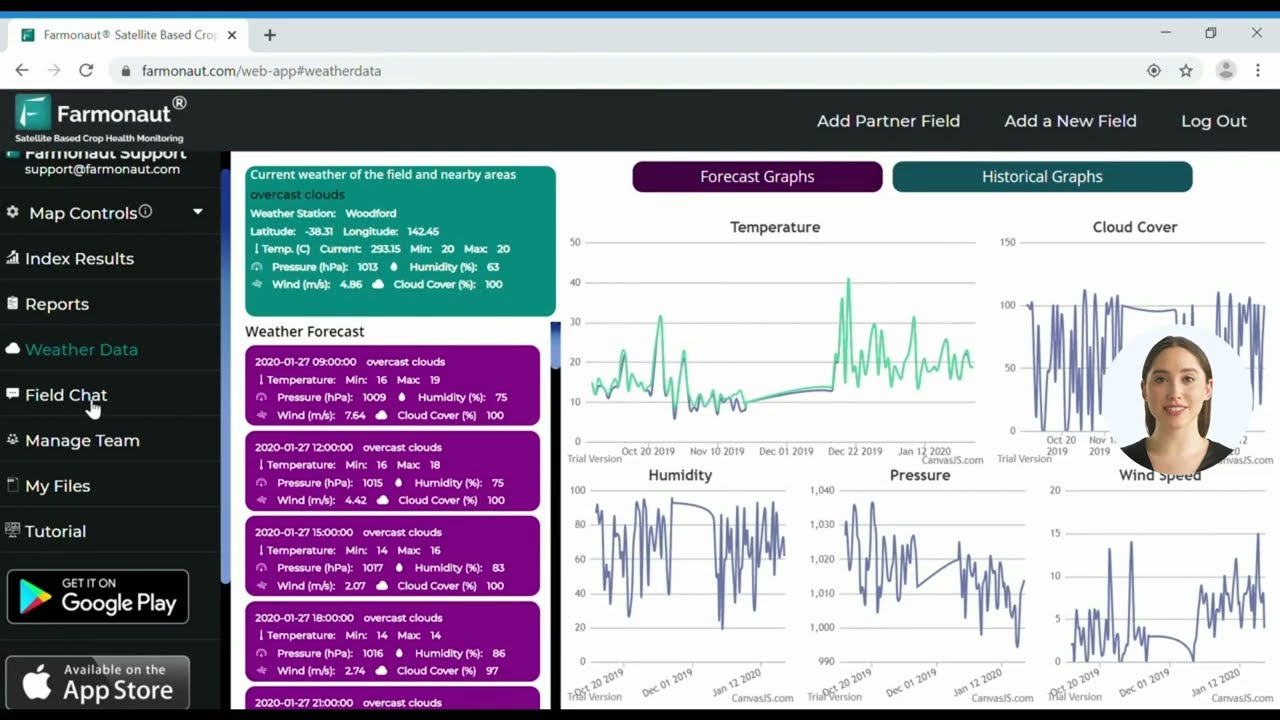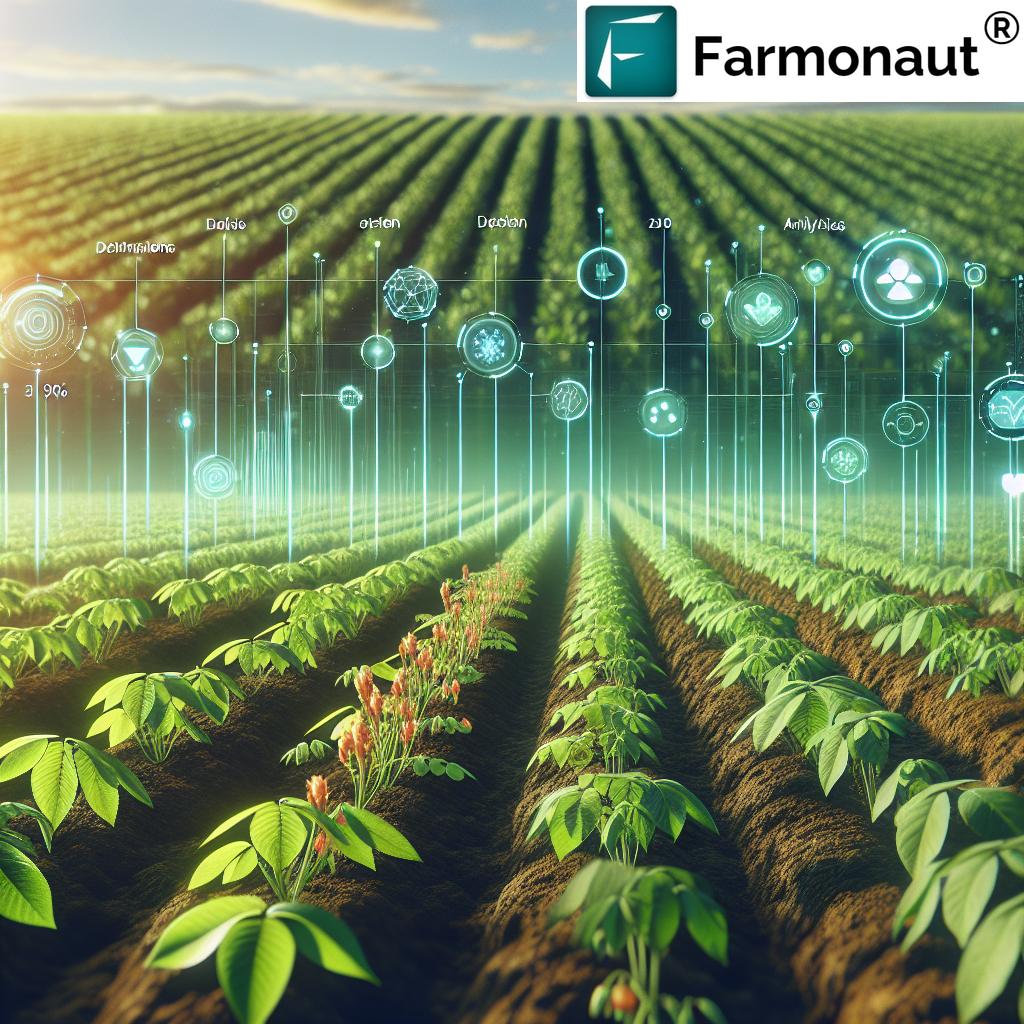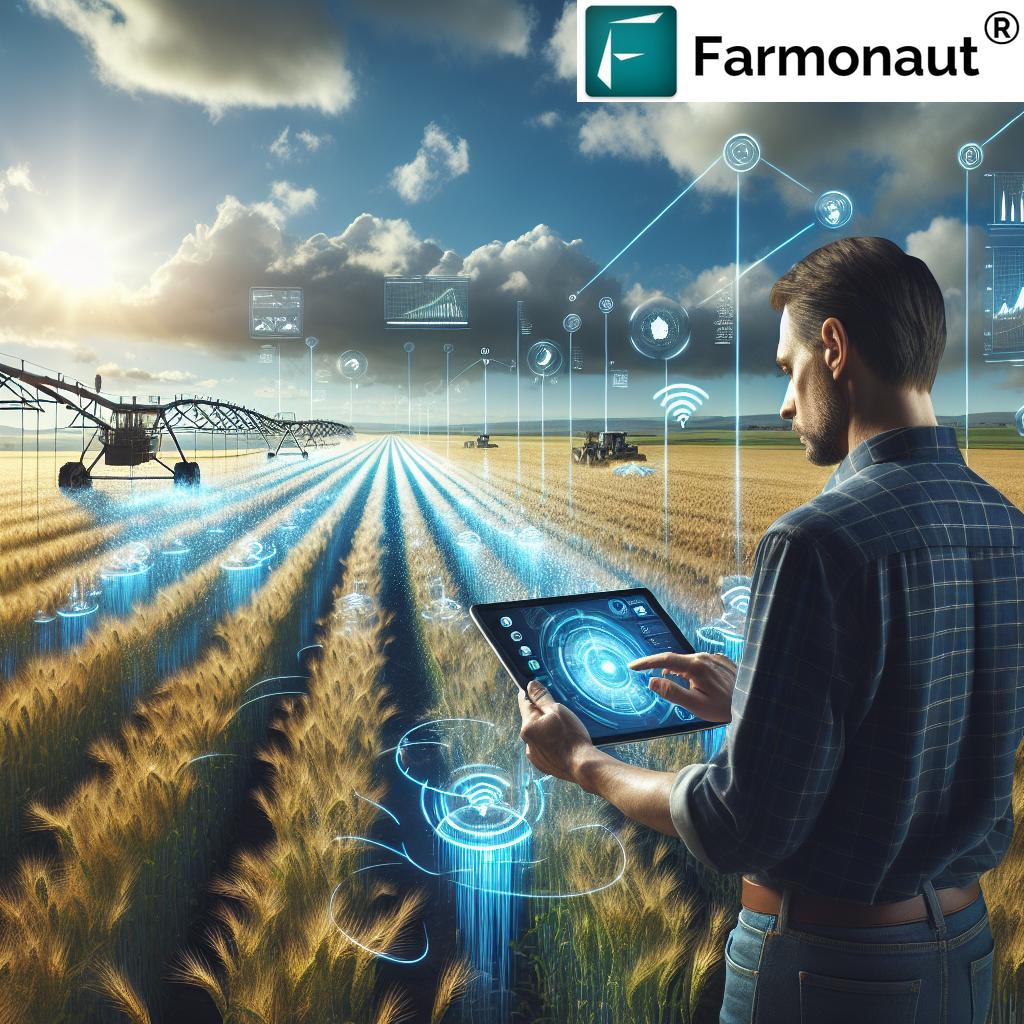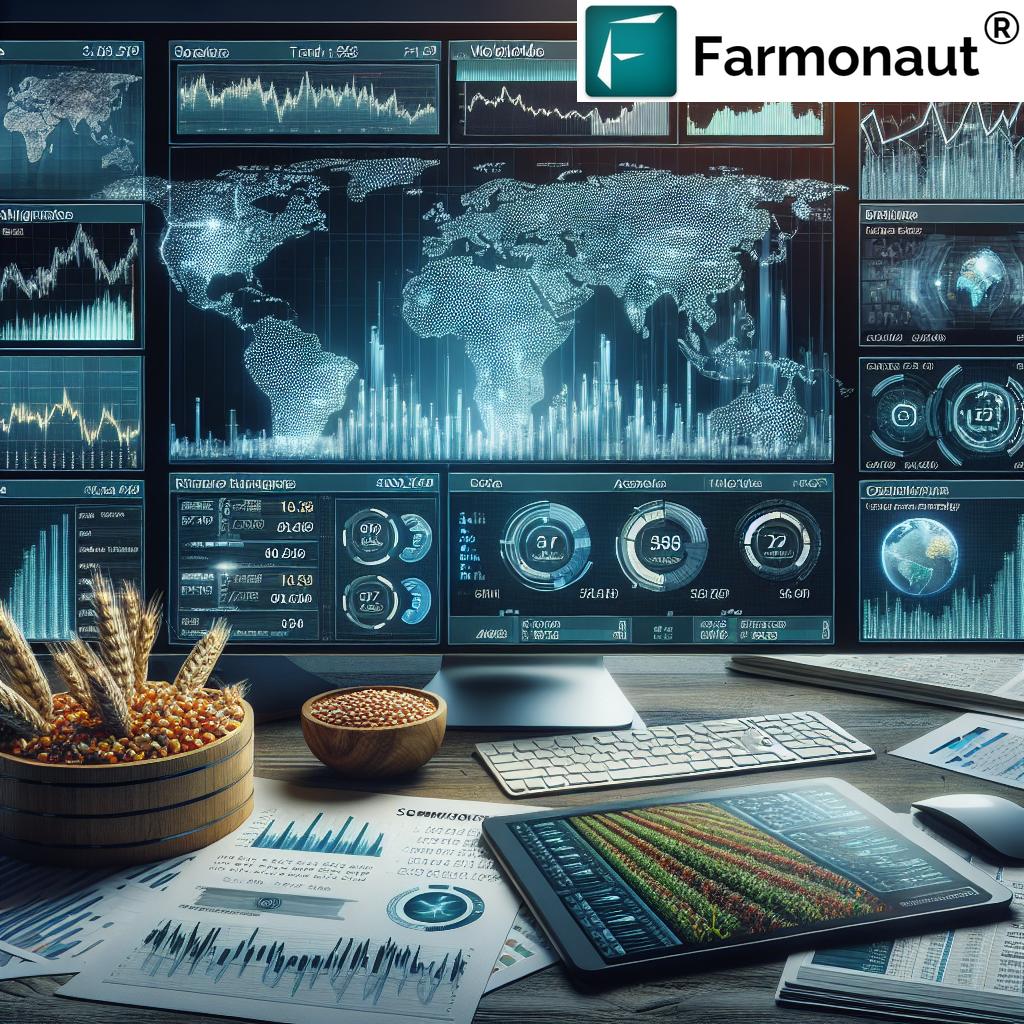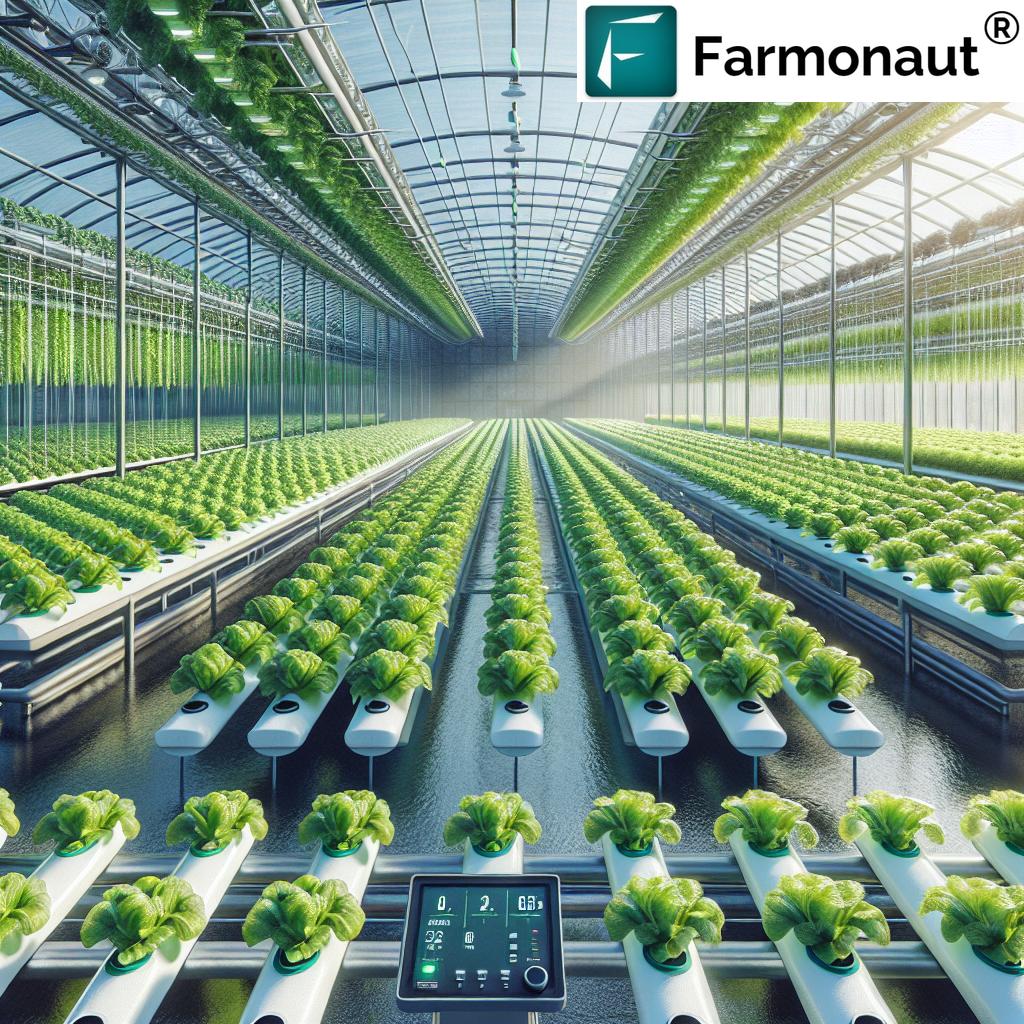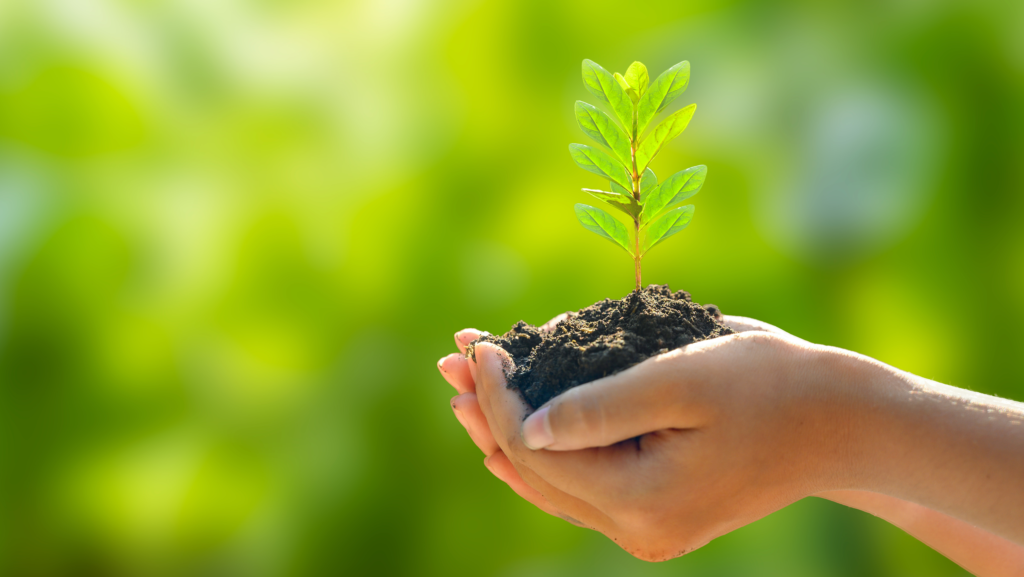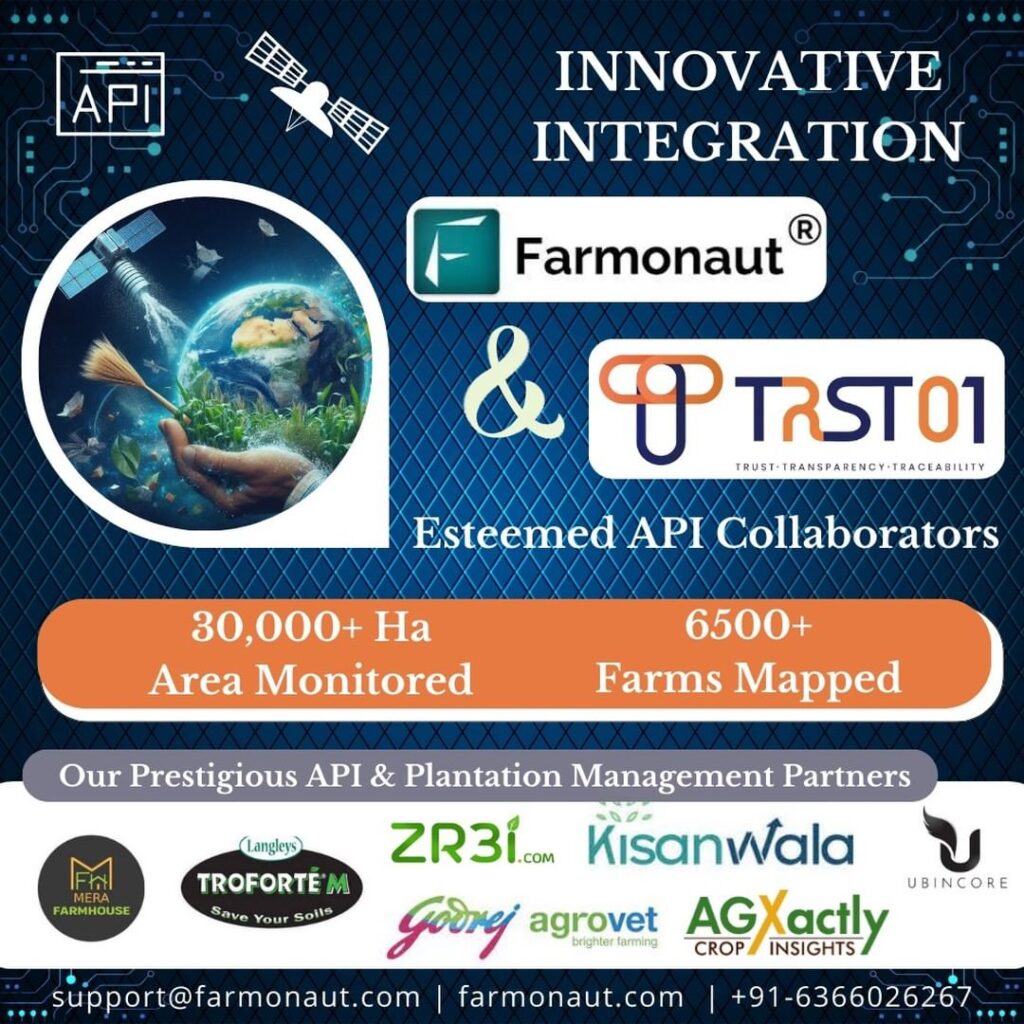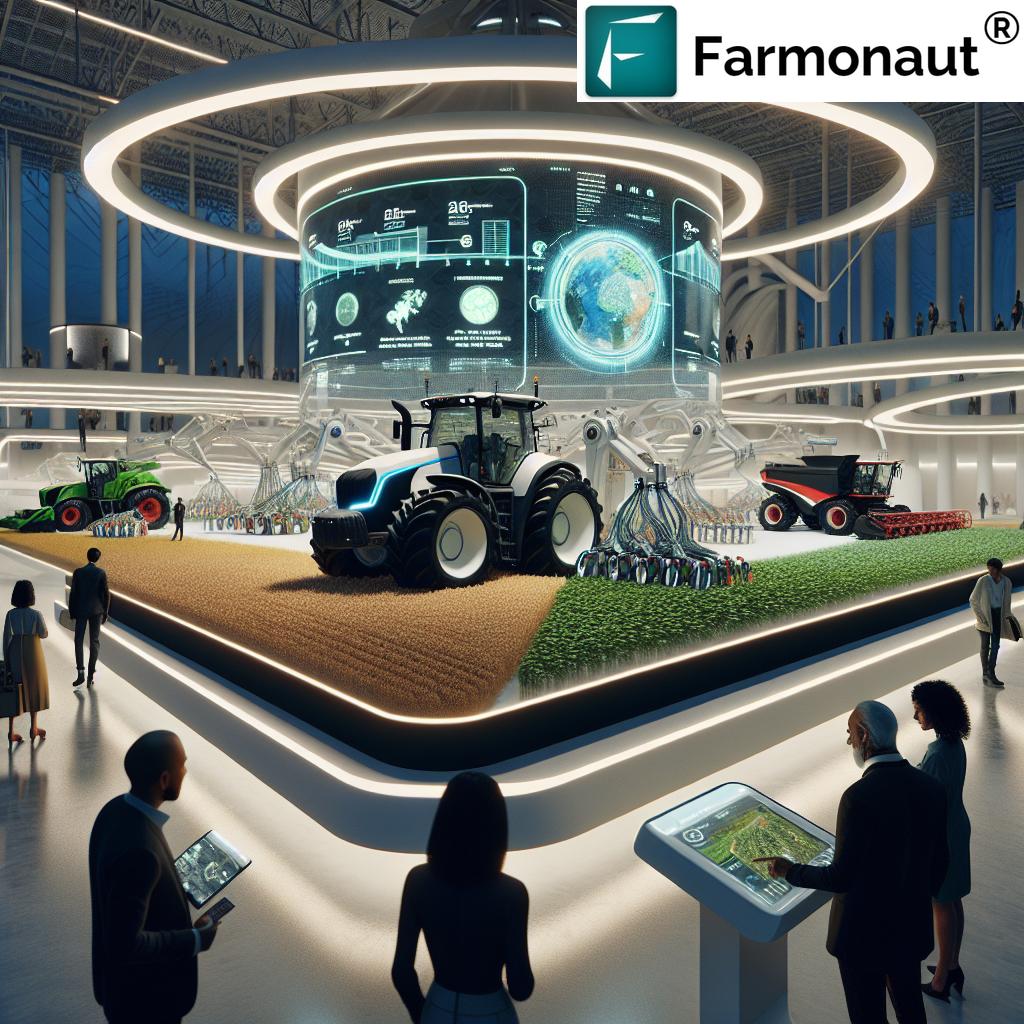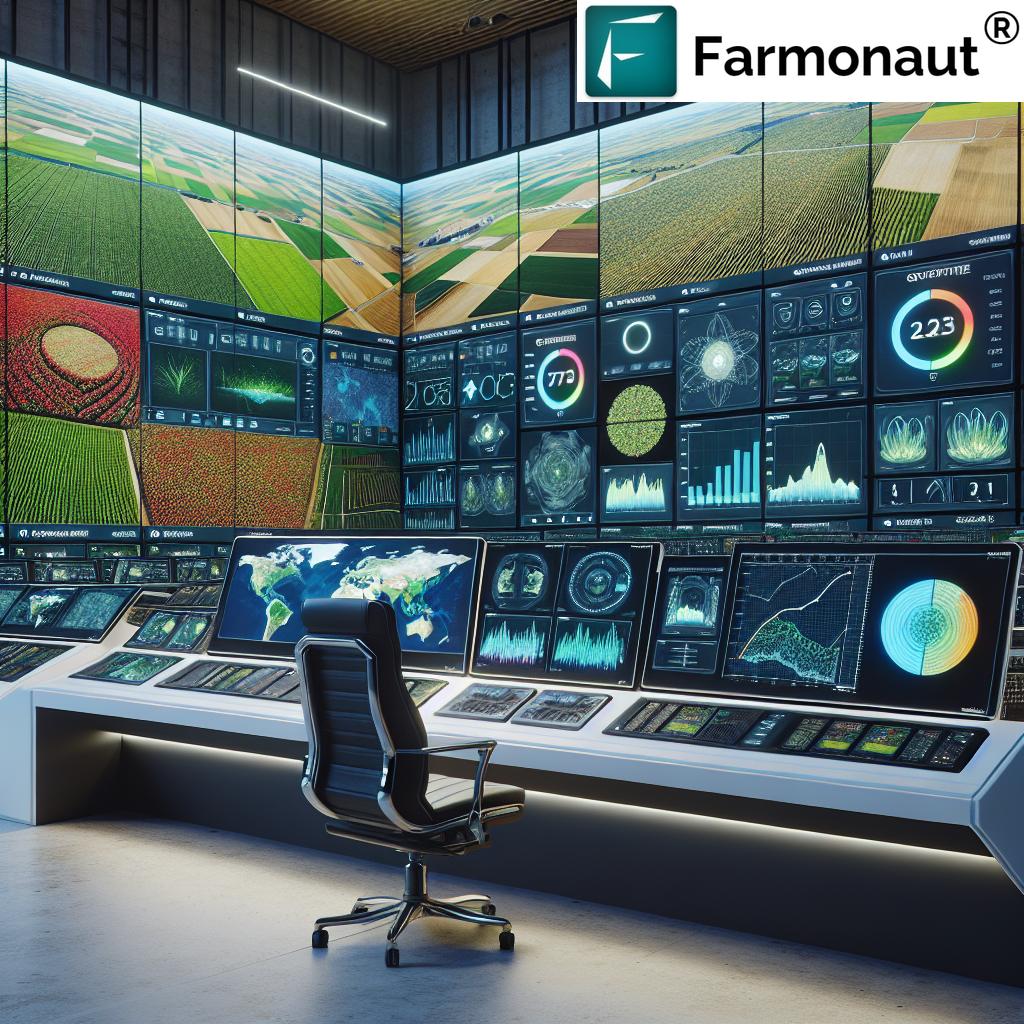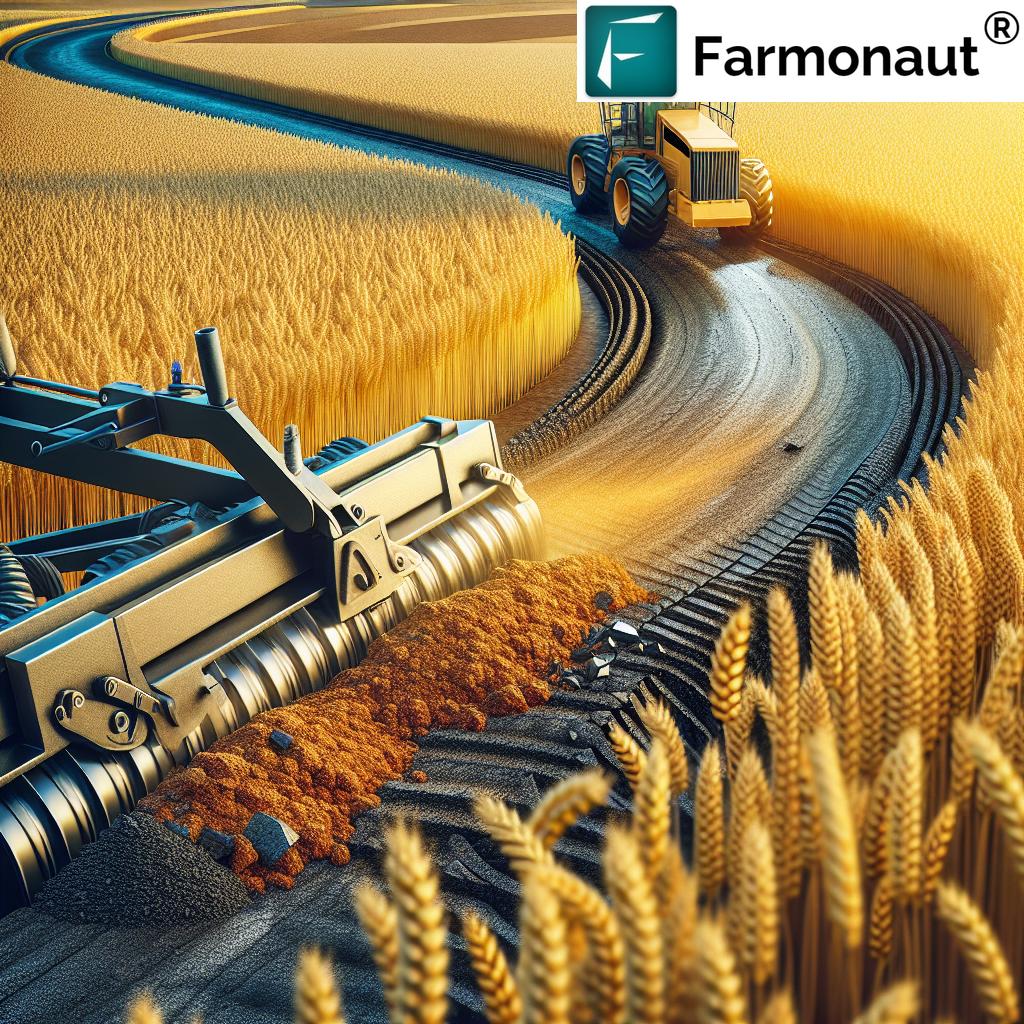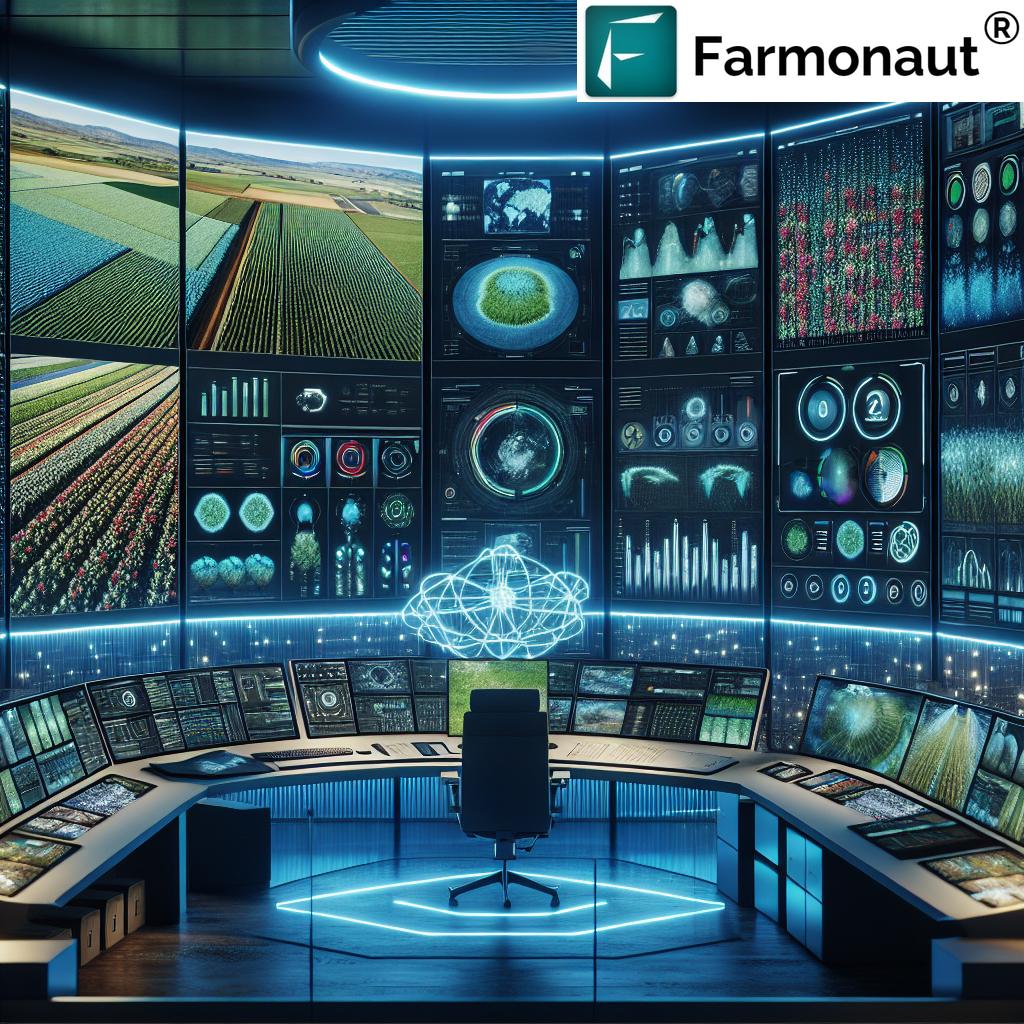Crop Scouting Precision Farming Market: 7 Shocking Tech Trends!
Table of Contents
- Introduction: The Evolution of Crop Scouting in Precision Farming
- The Role and Importance of Crop Scouting
- 7 Shocking Tech Trends in Crop Scouting Precision Farming Market
- Comparative Technology Impact Table
- Market Dynamics, Growth & Competitive Landscape
- The Farmonaut Edge: Satellite-Based Crop Scouting Technologies
- Challenges and Opportunities in Precision Farming
- FAQs: Crop Scouting & Precision Agriculture Technologies
- Farmonaut Subscriptions
- Conclusion: The Road Ahead for Crop Scouting Precision Farming
“AI-powered crop monitoring can increase yield prediction accuracy by up to 30% in precision farming.”
Introduction: The Evolution of Crop Scouting in Precision Farming
As precision farming transforms the global agricultural landscape, crop scouting technologies have emerged as pivotal tools driving increased yield, optimized soil health, and sustainable farm management. In today’s high-stakes food production ecosystem, we must ensure every crop and field receives precisely what it needs to thrive—no more, no less.
The crop scouting precision farming market is at the epicenter of this digital revolution, integrating cutting-edge AI-powered crop monitoring, drones in agriculture, and IoT devices for farming to supercharge resource management and detect pest infestations or nutrient deficiencies faster than ever before.
Let’s embark together on a comprehensive exploration into the remarkable rise of modern crop scouting, uncovering 7 shocking tech trends making headlines in the world of smart, efficient, and sustainable agriculture.
The Role and Importance of Crop Scouting
Crop scouting is the process of systematically assessing crop conditions in fields to identify pests, diseases, deficiencies, and other field variability factors impacting plant performance and productivity.
- It’s a critical component in precision farming, allowing us to determine risk from potential infestations and evaluating the best control interventions.
- Traditional methods were labor-intensive, slow, and sometimes failed to detect issues early, resulting in inefficient input application and lower yields.
- Modern tools use advanced technology (such as sensors, drones, and AI analytics) to monitor conditions and provide real-time data, empowering farmers to respond swiftly and accurately.
Thanks to the integration of smart crop management solutions, we can regularly monitor fields and detect symptoms of disease or stress before they are visible to the naked eye—optimizing every input for maximum yield and minimal waste.
7 Shocking Tech Trends in the Crop Scouting Precision Farming Market
1. Satellite-based Crop Health Monitoring (Remote Sensing Revolution)
One of the most impactful advancements is satellite-based crop monitoring. Platforms like Farmonaut leverage multispectral imaging from satellites to track crop health across vast regions, day or night. This technology provides deep insights into vegetation health indices (NDVI), soil moisture levels, and field variability.
- Gives farmers early warning of disease spread and stress before visible symptoms.
- Helps manage irrigation schedules and fertilizer application to optimize resource use.
- Requires no extra hardware—making it cost-effective for small and large farms alike.
By integrating this solution into daily field management, crop scouting times are reduced, and on-the-ground decisions become more precise and actionable.
2. AI-powered Crop Monitoring and Predictive Analytics
Harnessing the power of artificial intelligence (AI) in crop scouting revolutionizes how we analyze data from multiple sources—from drone imagery to soil composition sensors. AI-powered crop monitoring delivers:
- Early warning for pest outbreaks and disease threats—often before symptoms become visible.
- Personalized advisories that recommend precise interventions (fertilizer, irrigation, spraying).
- Increased yield prediction accuracy by up to 30%, helping farmers make confident economic decisions.
Farmonaut’s Jeevn AI advisory system is an example of this technological leap, analyzing satellite data and providing real-time, actionable insights.
“Over 60% of large farms now use advanced crop scouting technologies for sustainable management.”
3. Drones in Agriculture for Aerial Crop Scouting
Modern aerial scouting is dominated by unmanned aerial vehicles (UAVs)—commonly known as drones. These are now essential for precision farming, thanks to:
- High-resolution cameras and multispectral sensors that capture detailed images of fields.
- Real-time aerial imagery to detect pest infestations and evaluate soil health instantly.
- The ability to cover hundreds of hectares in a single flight—far faster than ground patrols.
AI-powered drones can even analyze temperature, humidity, CO2 levels, and identify nutrient deficiencies or diseases long before symptoms spread.
Drones in agriculture are a cornerstone of early pest detection in crops and modern precision agriculture practices.
4. IoT Devices for Farming and Real-time Field Analytics
The widespread deployment of IoT (Internet of Things) devices for farming enables continuous data collection from the ground up:
- Sensors monitor localized soil moisture, temperature, and humidity levels 24/7.
- Wireless data transmission feeds actionable analytics for precise input applications.
- Automated integration with smart irrigation, fertilization, and crop monitoring systems ensures maximum efficiency.
With IoT and sensor fusion, farmers can assess the effectiveness of interventions and make data-driven decisions in real time—enhancing both yield optimization and environmental stewardship.
5. Blockchain-based Traceability for Sustainable Farming Technology
Product traceability is becoming a cornerstone in sustainable farming technology—not only for regulatory reasons but also for building consumer trust and improving supply chain transparency. Farmonaut’s blockchain-based traceability solutions allow:
- Tracking every lot from farm to fork, verifying its origin, quality, and journey.
- Protecting crops from fraudulent claims and ensuring secure data records for buyers, sellers, and insurance providers.
- Supporting sustainability mandates by documenting eco-friendly practices at every step.
This revolution in agricultural data integrity is vital to field management and global export markets.
6. Carbon Footprint Tracking and Environmental Impact Management
The future of precision agriculture practices is inextricably linked with climate action. Farmonaut’s Carbon Footprinting solution is a leader in this segment, offering:
- Continuous measurement of emissions associated with farming processes.
- Real-time data that helps businesses and farmers reduce their environmental impact.
- Facilities to comply with ever-stricter sustainability regulations.
With these analytics, resource applications can be optimized for sustainability and profitability, helping to ensure food production is both productive and responsible.
Learn more about this feature on Farmonaut Carbon Footprinting.
7. Smart Fleet and Large-scale Farm Management Solutions
Big agricultural operations require integrated fleet and resource management to streamline logistics, reduce operational costs, and maximize field coverage. Farmonaut offers a Fleet Management module that helps:
- Track and optimize the use of vehicles, equipment, and labor.
- Ensure safety, decrease fuel waste, and minimize downtime—resulting in substantial savings.
- Integrate with satellite-driven monitoring for complete operational oversight.
For those orchestrating large plantations, cooperatives, or corporate farms, Farmonaut’s Large-Scale Farm Management app provides centralized control over diverse and geographically spread operations—all accessible via web and mobile.
For agritech developers and researchers: Seamlessly integrate real-time satellite and weather data into your own systems via the Farmonaut API and review technical documentation at API Developer Docs.
Comparative Technology Impact Table: 7 Shocking Tech Trends in Crop Scouting Precision Farming
| Technology/Trend | Core Function | Est. Yield Increase (%) | Est. Soil Health Improvement (%) | Sustainability Impact (Est. Reduction in Chemical Use %) | AI/Automation Level |
|---|---|---|---|---|---|
| Satellite-based Crop Health Monitoring | Remote detection of crop stress, soil, and vegetation indices | 15-25% | 10-20% | 15-20% | High (Automated, AI-enabled) |
| AI-powered Crop Monitoring | Predictive analytics for early risk identification and intervention suggestions | 20-30% | 10-15% | 20-25% | Very High (Full automation) |
| Drones in Agriculture | High-resolution aerial scouting of pest/disease and soil variability | 12-22% | 8-18% | 18-27% | High (Autonomous analysis) |
| IoT Devices & Smart Sensors | Continuous, on-field data collection for responsive management | 10-18% | 20-28% | 15-22% | Medium to High |
| Blockchain Traceability | End-to-end supply integrity and fraud prevention | 6-12% (Quality-linked) | 7-14% | 15-20% | Medium (Logic automation) |
| Carbon Footprinting Tools | Tracks and helps lower environmental and carbon impact | 5-10% | 12-18% | 18-32% | Medium (Automated calculation) |
| Smart Fleet Management | Optimized deployment of agricultural machinery and resources | 7-13% | 6-15% | 15-20% | Medium to High |
Market Dynamics, Growth & Competitive Landscape
The global precision farming market is valued at $10.50 billion (2023) and is forecasted to grow at a CAGR of 12.8% from 2024 to 2030. Key segments such as smart crop scouting and smart spraying are even outpacing this average—set to reach $9.86 billion by 2028 (ref).
- The driving force behind this growth? Increasing demand for sustainable agricultural practices, resource optimization, and the adoption of advanced analytics and IoT devices by farmers worldwide.
- Key players and companies include John Deere, Trimble, CNH Industrial, Bayer, AG Leader Technology, Raven Industries, Sentera, and Farmonaut—all offering innovative solutions to automate and enhance crop management and disease control.
Newer startups and established industries are investing heavily in R&D, ensuring a steady stream of market advancements in precision agriculture.
The Farmonaut Edge: Satellite-Based Crop Scouting Technologies
At the heart of this revolution, Farmonaut emerges as a pioneering agricultural technology company making precision agriculture affordable and accessible. Here’s what sets us apart:
- Satellite-based crop health monitoring delivers instant NDVI, soil moisture, and field variability metrics directly to farmers’ Android, iOS, and web devices—removing the hardware barrier!
- The Jeevn AI Advisory System analyzes real-time farm data to offer customized interventions and weather forecasts.
- Blockchain traceability validates agri-exports and builds trust across supply chains.
- Carbon footprinting enables sustainable farming technology and compliance with global eco-standards.
- Fleet and resource management tools for agri-corporates and large co-operatives (explore more on Fleet Management solution or Large Scale Farm Management).
- All features accessible in user-friendly apps and API for seamless farm-to-phone management.
We are redefining crop scouting and precision farming—making advanced, scalable, and sustainable agricultural solutions available to individual farmers, agri-enterprises, government bodies, and financial institutions, democratizing access across the globe.
Challenges and Opportunities in Precision Farming
No transformative market is without its challenges—and precision farming is no exception. Yet, these hurdles pave the way for meaningful innovation:
- High Initial Investment: While satellite and cloud-based solutions (such as Farmonaut’s) lower upfront costs, integrating advanced machinery or drones can still be prohibitive for some growers.
- Data Security: The vast collection and transfer of sensitive farm data raises questions about privacy, ownership, and misuse.
- Compatibility: Ensuring new tech seamlessly integrates with existing equipment is a key user demand—and a driver of Farmonaut’s API-first architecture.
- Complex Analytics: Effective use of deep data analytics requires training and user-friendly interfaces—an area of continuous improvement for us and the sector at large.
Opportunities:
- AI and Automation: The rise of AI-powered solutions can handle massive datasets, lowering human labor needs while improving response times and input accuracy.
- Demand for Sustainability: Increasing consumer and regulatory pressure to minimize environmental impact creates vast opportunities for technological solutions that promote sustainable farming.
- Access to Financing: Farmonaut’s satellite-verification for crop loan and insurance expedites credit and insurance approvals while minimizing fraud—empowering more farmers globally.
- Scalability: Modern apps and cloud platforms mean even smallholders anywhere in the world can now tap the benefits of crop scouting precision farming, turbocharging global growth.
FAQs: Crop Scouting & Precision Agriculture Technologies
What is crop scouting in precision farming?
Crop scouting is the systematic assessment of field conditions (health, pests, disease, nutrients) to make informed management decisions for optimal yield and productivity. In precision farming, it is supercharged by technology, analytics, and real-time data.
How do drones and AI improve crop scouting practices?
Drones provide fast, wide, and detailed aerial imaging of fields, enabling early detection of problems. AI analyzes these vast datasets for patterns, predicting issues and optimizing interventions.
Can precision farming reduce my farm’s environmental impact?
Absolutely! Precision farming technologies (e.g., satellite monitoring, AI, IoT, carbon tracking) minimize unnecessary input use (like fertilizer or pesticides), thus reducing both cost and environmental footprint.
What types of farms/operations can benefit from Farmonaut’s solutions?
Farmonaut is designed for individual farmers, cooperatives, agribusinesses, governments, NGOs, financial and corporate clients—scaling from a single parcel to thousands of hectares.
Are Farmonaut’s crop scouting technologies easy to access and use?
Yes! Through intuitive web, Android, and iOS apps, any user can monitor crop/soil health, leverage AI-based advice, and integrate with other farm management systems via API access.
Farmonaut Subscriptions: Affordable Access to Next-Gen Crop Scouting
Gain instant access to real-time crop health analytics, AI advisory tools, and smart farm management solutions through flexible Farmonaut subscription plans—tailored for small farmers, cooperatives, agribusinesses, and institutions. No hardware required, just actionable data at your fingertips!
Conclusion: The Road Ahead for Crop Scouting Precision Farming
From satellite monitoring and AI-powered crop scouting to blockchain traceability and carbon tracking, technological advancements continue to redefine what farmers can achieve. As a critical component of precision farming, powerful crop scouting technologies are enabling us to detect and manage issues earlier, apply resources more efficiently, and build a food system that is both productive and environmentally responsible.
We are proud to shape this transformation at Farmonaut, making precision agriculture solutions accessible to all, and providing the foundation for a future of smart, sustainable, and scalable agriculture.
Ready to start your own journey in advanced crop scouting, sustainable farming technology, and AI-driven productivity? Explore our apps or API and unlock next-gen crop management solutions—anytime, anywhere.





